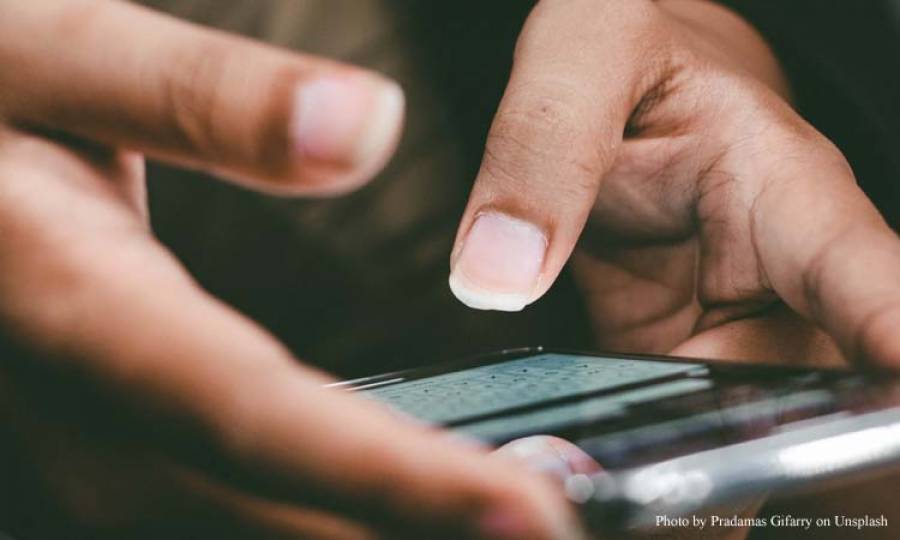Findings suggest online health misinformation was already widespread before the COVID-19 pandemic

WASHINGTON: Online propaganda about COVID-19 had influenced individuals to be indulged in thoughts and actions that resulted in rapid transmission of COVID-19.
Recent research looked at early COVID-19 electronic conversations. A team of investigators discovered that posts on COVID-19 were less likely to include misinformation than other health subjects in a groundbreaking study comparing hundreds of millions of social media posts. The researchers observed widespread health misconceptions prior to the COVID-19 epidemic. Between March and May 2020, posts about COVID-19 were more likely to come from public agencies and educational establishments. These posts went viral more often than posts from sources that regularly propagate disinformation.
David Broniatowski, an associate professor of engineering management and systems engineering at the George Washington University and associate director of GW’s Institute for Data, Democracy and Politics, expressed, “But when you compare it to what was going on before the pandemic, you start to see that health misinformation was already widespread.
What changed is that, when COVID-19 hit, governments and social media platforms started paying attention and taking action.”
During the early stages of the pandemic – between March 2020 and May 2020 – the team gathered public messages on Twitter and Facebook concerning COVID-19. They compared those postings to others from the same period in 2019 that discussed various health subjects, looking at the authenticity of the websites that each post shared. In addition to government and academic sources, more reliable sources included the traditional news media. Not reliable sources included conspiracy-oriented sites and state-sponsored sites notorious for spreading propaganda, which was three and a half times more likely to spread disinformation than credible ones.
Mark Dredze, an associate professor of computer science at Johns Hopkins University and co-author of the study, claimed that before COVID-19, misinformation was at a higher level than it is now. Misinformation was well-known before COVID-19, and as a result, it was fully predicted. Humans might not be in this anti-vaccination crisis today if humans had been more engaged in countering disinformation.
Sandra Crouse Quinn, a professor at the University of Maryland’s School of Public Health and a co-author of the paper, highlighted that research on COVID-19 misinformation was vital at the time of the epidemic and how humans can address this obstacle.
The paper, “Twitter and Facebook posts about COVID-19 are less likely to spread misinformation compared to other health topics” has been published in the journal PLOS ONE
Advertisement
Trending
Popular
Hair loss: Discovery uncovers key stem cells that could reverse ...
-
Broccoli sprout compound may help lower ...
11:31 AM, 25 Feb, 2025 -
Gas Pain vs. Heart Attack: How to tell ...
09:00 PM, 22 Feb, 2025 -
Coconut oil supplement shows promise ...
08:00 PM, 20 Feb, 2025 -
Normal vitamin B12 levels may still ...
05:00 PM, 19 Feb, 2025



